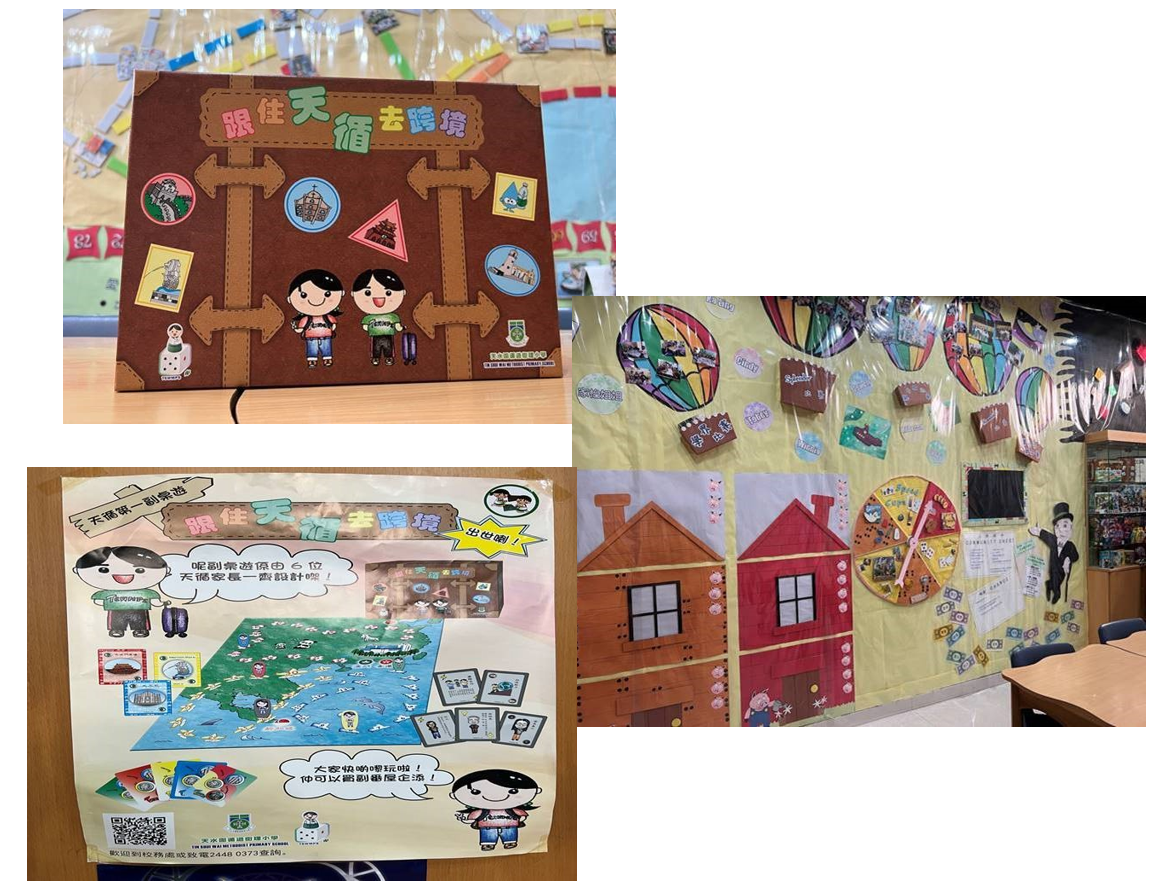Tin Shui Wai Methodist Primary School
Leadership Role of Special Educational Needs Coordinator
The story of a Special Educational Needs Coordinator
Since the Education Bureau launched the Pilot Project on Special Educational Needs Coordinators in the 2015/16 school year, Special Educational Needs Coordinators (SENCOs) have been assigned as the designated teachers to coordinate matters relating to special educational needs (SEN) in schools. SENCOs are responsible for the strategic planning, implementation, monitoring, review and evaluation of school measures and resources, including the appropriate use of the Learning Support Grant and the flexible deployment of the school’s manpower, for supporting students with SEN. In addition, they have to take part in school leadership meetings and lead the student support team in formulating school-based integrated education policies. Under the 3-tier support model, they translate support concepts into actions by setting up support groups on speech therapy, reading and writing, attention building, personal growth and so on to support students with SEN according to their individual circumstances and educational needs. SENCOs are also required to make optimal use of resources and arrange internal or external training for teachers regularly so as to solicit more teachers’ support for the development and implementation of integrated education, thereby creating an environment conducive to the Whole School Approach.
When I first took up the post of SENCO, I felt very stressed with the overwhelming workload and expectations of this position. I knew that leadership could not be developed overnight, nor could I provide effective support single-handedly. Thanks to the steer and support of the School Head and the cooperation of the entire support team, a communication platform through which we have regular sharing of experiences and resources has been established.
Collaboration across subject panels
When collaborating across subject panels, my team exchanged ideas and views with the subject teachers to work out collaborative goals and methods and come up with specific measures. Take the example of in-class collaborative teaching between the school-based speech therapist and the Chinese Language panel. To build students’ vocabulary and improve their narrative skills in light of their learning needs, we selected some intriguing topics to arouse their interest, then helped them strengthen their vocabulary through group discussion, and enhanced their narrative skills by asking them to retell the stories. Finally, we drew up a schedule for implementation at different grade levels with the workflow and division of labour clearly demarcated and subsequently reviewed for refinement.
Our school adopts a person-centred approach and uses the One Page Profile to get a picture of students’ interests and hobbies, as well as their needs and learning difficulties. We then draw up individualised support plans, having regard to their views and experiences. Teachers will talk with students and listen to what they think while completing the One Page Profile so as to understand their learning needs from their perspective. Sometimes, the students’ feedback can be pleasantly surprising.

Understanding students’ learning needs through their “One Page Profiles”
Home-school cooperation
On communication with parents, we play the role of an active listener in grasping their thoughts and concerns so that appropriate support can be given to their children with SEN. At the same time, we also seek to dispel their anxieties and overly high expectations by explaining to them the school’s policies and measures for supporting students with SEN. Apart from establishing a regular communication mechanism, we organise courses for parents and encourage their active participation, through which they can learn more about the support measures of schools. For example, there was a board game course to help improve parents’ communication skills with their children and foster the parent-child relationship. In one of the activities, parents were asked to design a board game with their children on the topic of “cross-border journey”. Children would talk about their journey to school across the border as if they were commuting with their parents. Parents could thus learn about their children’s school lives and in return share their daily life experiences with them. Furthermore, they could design game cards together, which added fun to the game and promoted the parent-child relationship.
Helping people help themselves, resulting in self-improvement
There was a mother whose children were both autistic. She faced many challenges, taking care of them and handling their conflicts, and was physically and mentally exhausted from cumulative stress.
When she first joined our activities, she had a good time playing board games. She later volunteered to take the school-based training course to become a board game tutor, helping herself and others by teaching students and sharing experiences with fellow parents. Feeling unsure at first about being able to do well, she humbly learnt from other parent-tutors, whose guidance and support had made her more at ease. She said when playing board games, she could leave her worries behind and have fun. It felt like she had found her old self and was blessed with the companionship of other parents.
As a board game tutor, she must teach with clarity and patience. The experience enabled her to appreciate more of her students’ learning difficulties as well as their reactions and feelings. This in turn eased her worries about her children, and she could thus give them guidance, channel their emotions and handle their behaviours more confidently and skillfully at home.
We are so thankful and delighted to see the changes in her. School is another home not only for students but also for parents where they can take a break and recharge. Although this mother has a job now, she is most willing to continue serving as a board game tutor and make herself available whenever she is needed.

A variety of board games that are appealing to parents
A word of encouragement to fellow SENCOs
Every student with SEN is unique. Instead of providing standardised support, we should cater for their “individual” needs. The workload could be heavy, but with the entire support team sharing it out in a concerted effort, life would become “easier” for us SENCOs. We are not alone on the path of supporting students with SEN. It is rewarding and fulfilling to see their smiling faces and to know that they are making headway, that their parents are reassured by their progress, and that teachers are showing more confidence in supporting them. It keeps us motivated when students find their goals, strength or self-worth in life and when they and their parents are touched by our love for them.
